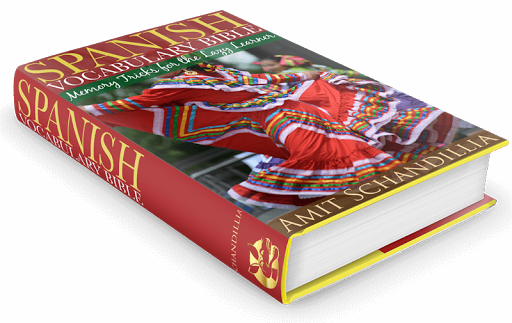A little more about the past
There are several ways of discussing the past in Spanish and of those, two are of particular significance not only for their ubiquity but also for the difficulty rookies face understanding them! If you really care for names, they are called, the imperfect and the preterite forms.
The imperfect form essentially discusses actions as either habitual, repetitive, or incomplete. Most often, such actions are rendered in English using the phrase, “used to.” This form also covers descriptions of state or being in the past. Note the following scenarios that are covered by this form in Spanish:
I used to write to him (repetitive)
Life was good (state)
You were very naughty when you were a kid (state)
You would often come home with a broken nose or torn clothes (habitual)
It was midnight (state)
I was 29 years old (state)
When the action being discussed took place once in the past and concluded with a well-defined end, you use the preterite. Note these scenarios that illustrate the usage:
I wrote you a letter
She read that book twice (repetitive yet with a well-defined end)
He got cold
He turned 20 last year
The storm was over by evening
Pages after pages can be written about how these two tenses should be used but we guess the above illustrations have done enough to help you understand the differences between them. However, if you are like most of us, you would still face a real big challenge remembering and recalling the associated conjugations while speaking Spanish. Let’s see if something can help!
Camila
 |
| Camila: Samuel “Samo” Parra, Pablo Hurtado, and and Mario Domm Photo credit: kindofadraag licensed CC BY-SA 2.0 |
Domm studied singing, music theory, piano, harmony, and counterpoint at the Escuela Nacional de Música where he entered at the age of 17. He was born in Torreón, Coahuilca and started his singing career in 2001 when he signed up with Sony Music to release his first and only solo album, Mexi-Funky-Music. Samo was born in Veracruz and started his career in 1995 when he participated in the successful Festival Valores Juveniles. The third member, Hurtado is from San Luis Potosí and he studied Audio Engineering and Music Production at the Academy of Music Fermatta. He began his career at the age of 5!
The word, Camila, apparently means “close to God” and was initially suggested as the group’s name by a friend when the trio was pondering over what to call themselves. As you can easily guess, the name stuck.
Todo Cambió
Todo Cambió (Everything Changed) is the lead single from the first album (of the same name) that was released by Camila and was released in 2006. This album, which includes a blend of Latin pop and rock, was certified three-times platinum in Mexico after it hit 300,000 units in sales.
This single swept away several awards and nominations between 2007 and 2008 including one at the 2007 Latin Billboard Music Awards. Todo Cambió is a touching ballad of love that essays the state of mind of a starry-eyed lover right after falling falling in love. If you have ever fallen in love, you will find this song extremely easy to identify with and that’s what makes it ideal for anyone hoping to use it as a learning tool. The verses are rich in verbs in their past tense conjugation, both preterite and imperfect. For those who are still at odds with the infamous subjunctive, this song offers a hint of that mood too! Here’s a portion of its lyrics for your review but be sure to listen to the actual song several times before you even touch the lyrics.
Todo cambió cuando te vi (Everything changed when I saw you)
De blanco y negro a color me convertí (I turned from black and white to color)
Y fue tan fácil (And it was so easy)
Quererte tanto (To love you so much)
Algo que no imaginaba (Something I didn’t imagine)
Fue entregarte mi amor (Was to give you my love)
Con una mirada (With only one look)
Todo temblo (Everything shook)
Dentro de mi (Inside of me)
El universo escribío que fueras para mi (The universe wrote that you be for me)
Y fue tan fácil (And it was so easy)
Quererte tanto (To love you so much)
Algo que no imaginaba (Something I didn’t imagine)
Fue perderme en tu amor (It was to lose myself in your love)
Simplemente paso (It simply happened)
Y todo tuyo ya soy (Now I’m all yours)
Antes que pase más tiempo contigo, amor (Before I spend more time with you, my love)
Tengo que decir que eres el amor de mi vida (I need to tell you you are the love of my life)
Antes que te ame más (Before I love you more)
Escucha por favor (Please listen)
Déjame decir que todo te di (Let me just say I gave you everything)
Y no hay como explicar (And there's no way to explain)
Pero menos dudar (But much less to doubt)
Simplemente así lo senti (That’s simply how I felt)
Cuando te vi (When I saw you)
We will leave it to you to do some guesswork and tell me what the rest of the song means. If you listen to it enough number of times, interpreting this song is not as hard as it seems.



.png)